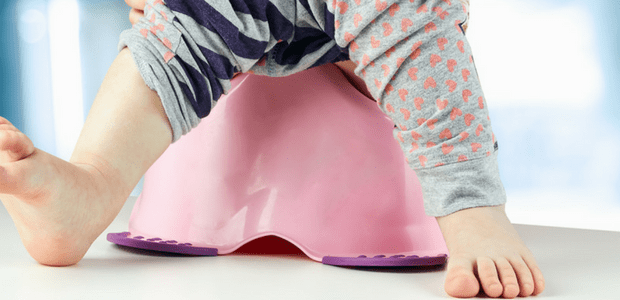Parenting children with autism can be very difficult because it involves dealing with many problems that wouldn’t generally come up if you had a normally developing child. One of such problems can be toilet training which can take some autistic kids longer than their siblings or friends to learn how to use the lavatory.
Many parents of children with Autism become frustrated when trying to teach their toddlers to use the toilet. In general practice, the autistic child just sits in the toilet and does nothing. Diapers often get bulky and really irritating to change; and of course a child has to be potty trained in order to be able to go to school.
Fortunately, there are many research studies that reveal numerous strategies that can be handy in potty training an autistic child.
- Remove Your Child’s Fear Around Toilet
When training your child to use the toilet, it is important that you break everything in small parts. Many autistic children have lots of fear around a lavatory.This could be because they feel they might fall in the commode or it’s very loud. Therefore, it is very important to remove this fear. Give your child the understanding of what a toilet is used for, introduce its different parts in a comparatively low-pressure environment.
- Don’t Force Your Child
When you buy a potty chair and pull-up, you want your child to start using it right away. However, this cannot be the case even with a typically developing kid. If your autistic child doesn’t feel like doing it, let it go. Give them a break and try again after one week or so. Once your child is willing to do it, you shouldn’t make them sit on the toilet for more than 10 minutes as it will cause them to get tired and lose their interest to learn using the toilet.
- Encourage Your Child with Physical Rewards
Find some rewards that your child may like the most such as their favorite cookies, food or toy. Pick anything that is small and can be kept in the bathroom in order to be accessible easily. Use these rewards to encourage your child to do their job successfully.
- Patience Is The Key
While working on how to potty train an autistic child can be irritating, you need to have patience in order to get success. You will need to stay in the washroom for some while every time you take your autistic child there. It’s a good idea to praise your child if they are willing to stay in the washroom and sit on the commode even if they aren’t doing anything but sitting.
- Acknowledge Each Step Accomplished Successfully
If your child accidently does something in the toilet, it’s the best time to show them where the waste is supposed to end up. After they get the idea, let them flush the toilet and use water to clean. Remember, every step accomplished gradually gets your child closer to the finish line which should be praised even if it is not accomplished in order.
- Train With A Routine
Children with Autism tend to make a routine and stick to it for whatever tasks they do. This can help you teach your autistic child how to use the toilet. Keep a record of time and duration your toddler gets wet and take them to the toilet at those times.You can get them used to a regular routine; for example, take them to the washroom every 30 minutes.
Parenting a child with Autism can feel like learning to walk upside down and backwards. Perhaps, you have been perplexed by your little one and wondered how to communicate with them well enough to help them use the toilet. Figure out what motivates your autistic child and how they learn the best and then incorporate both aspects in your approach.
 Kaboutjie SA Mommy Blogs by Lynne Huysamen
Kaboutjie SA Mommy Blogs by Lynne Huysamen






Hi Lynne, this is a very valuable article for parents and teachers of Autistic kiddies. As a therapist I work with quite a few Autistic kids, and I know that their parent struggle with potty training. It is also quite challenging for the teachers when they are not sure how to handle the child, especially in an inclusive education setup where the majority of children are treated in the same way even though they should be treated according to their specific needs.
I often share info like this on my Facebook page as it can be really helpful for some of my patients. Am I allowed to share this?
Regards,
Lauren
Hi Lauren – oh yes you are welcome to share our articles, that would be awesome.
Yes I am sure that there are plenty of challenges when autistic children are educated in a mainstream environment – there may be a lack of understanding and knowledge of autism.
Absolutely! So many people think they know what Autism is, but the scope of disabilities and impairments is so vast, that when they are actually faced with an autistic kiddie they don’t know what to do.
And thanks, I will share.
xxx
This is very informative, I am so scared of the day we need to start potty training.
My children do not have Autism but my son is 19 months old and have not spoken a word yet, he has an eye condition and has to wear glasses, so I am afraid that he rebels when the potty training starts.
Autism is not well known but I have learned a lot in this article, and I think other parents will as well.
Thanks Lynne